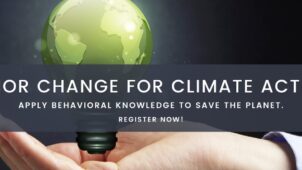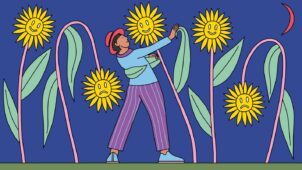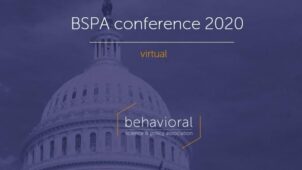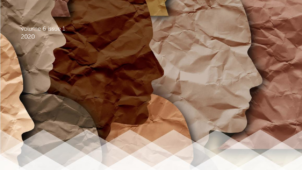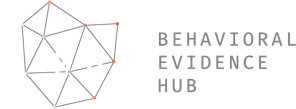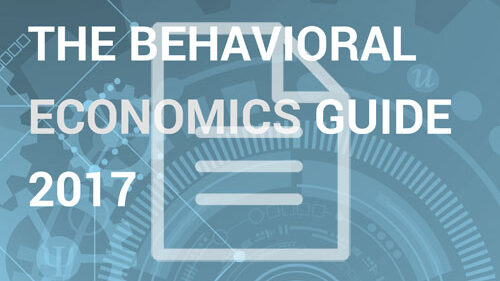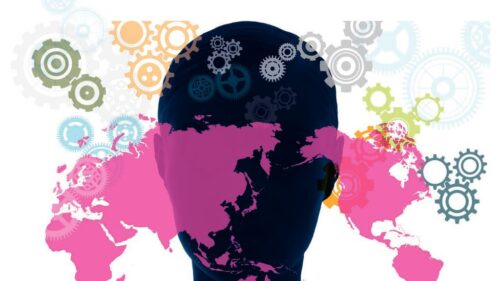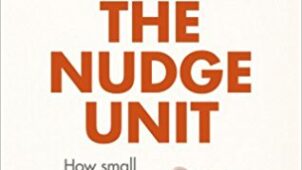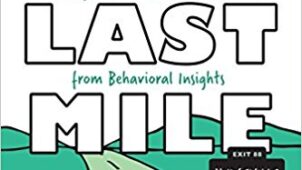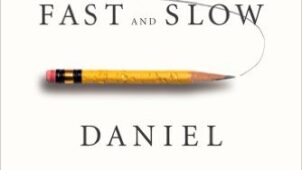News & Resources
News
-
PUBLICATION AWARD FOR INNOVATION IN BEHAVIORAL POLICY
For research that advances the rigorous application and development of behavioral/social science to policy and practice in public, private and non-profit sectors. Its goal is to encourage work that has potential to improve the quality of life of individuals and/or organizations. We will consider all research published, in journals or as books, in the years 2021-2024. The date must be the in-print date rather than the online date. Submit nominations to:
https://behavioralpolicy.org/publication-award/
The submission deadline is EOD March 31, 2024.
Winners will be announced at BSPA’s Online Conference, May 2-3, 2024
In the News
-
Behavior Change for Climate Action Challenge 2022
The Center for Behavior and Climate (CBC) is seeking applications for our Behavior Change for Climate Action Challenge 2022. The application is just 3 pages. To request application, email [email protected]. Climate areas of interest include but are not limited to: energy conservation, public action (e.g., policy support, volunteering, protesting, voting for politicians supporting climate action), food choices, tree planting, soil restoration, blue carbon restoration, renewable energy, and electrification of cars, trucks, buses.
Applicable evidence-based behavior change include, but are not limited to, the following: Make it easy, Nudges/Choice Architecture; Prompts; Justification; Instructions; Rewards; Feedback; Social Modeling (social norms, block leaders, community interventions); Cognitive Dissonance; Commitments; Setting Goals; Games; and Tools to Counter Cognitive Biases.
CBC will select 3 nonprofits for this challenge. Each of the selected nonprofits will receive:
1) free technical assistance to learn how to apply behavior change for climate action from the CBC (workshop and continued technical support);
2) $4650 in funds to apply behavior change to an existing or new climate action project.
https://climate.bds.com/behavior-change-for-climate-action-challenge: Applications accepted til Nov. 1, 2022 -
Thinking More Deeply About Positive Thinking
People like feeling in control of where their lives are headed, and the pandemic has made it especially difficult to feel this way. There’s little we can do to change the harsh realities of the current crisis, but professor Arthur C. Brooks describes how we can adopt a more positive mindset to better cope with these realities in The Atlantic. Is positive thinking always the answer to our problems, or can it sometimes lead us astray? In SPSP’s Character and Context blog, professor Trysh Travis describes some of the less-known perils of positive thinking-- for example, someone who has uncritically internalized a belief in thinking positively may feel it’s their own fault if they remain marginalized from systemic racism. Finally, Annie Duke weighs in on the power of negative thinking.
-
The Psychological Burden of Remote Learning
The pandemic has taken education out of its social context, and schools haven’t fully accounted for the psychological burden this imposes on students, writes psychologist Tess Wilkinson-Ryan for The Atlantic. Remote learning also exacerbates racial and economic gaps in achievement, reports the LA Times.
BSPA in the News
-
PUBLICATION AWARD FOR INNOVATION IN BEHAVIORAL POLICY
For research that advances the rigorous application and development of behavioral/social science to policy and practice in public, private and non-profit sectors. Its goal is to encourage work that has potential to improve the quality of life of individuals and/or organizations. We will consider all research published, in journals or as books, in the years 2021-2024. The date must be the in-print date rather than the online date. Submit nominations to:
https://behavioralpolicy.org/publication-award/
The submission deadline is EOD March 31, 2024.
Winners will be announced at BSPA’s Online Conference, May 2-3, 2024 -
missed the opportunity to attend bspa 2020? watch online now!
On May 28 & 29th, BSPA hosted its first ever *virtual* conference. Featuring Dan Ariely, David Brooks from the NYT, Shankar Vedantam from NPR, sessions on COVID-19, the state of behavioral science at the city and federal level, latest publications, and many more exciting sessions, we encourage you to sign up for access to a compelling two days.
-
New Issue of BSP – Spotlight on Diversity in the Workplace
Our most recent issue features five new articles that propose new insights into how “business and society can address matters relating to well-being, empowerment and equity.” The last of these is particularly timely: three articles in a Spotlight on Diversity in the Workplace take on questions of how to design effective practices to reduce workplace inequality, how to develop and deliver effective anti-bias training, and how to manage teams in ways that make the most of their diversity.
resources
Behavioral Science in Action

Within Federal Government
- Australia
- Canada
- Finland
- Germany
- Ireland
- Mexico
- Singapore
- United Kingdom of Great Britain and Northern Island
- United States of America
Research & Think Tanks
- Innovations for Poverty Action (IPA)
- Abdul Latif Jameel Poverty Action Lab (J-Pal)
- MDRC
- World Bank GINI Team
Academic
- Behavioral Insights Group at Harvard University
- Centre for Evidence-based Management
- Duke University Center for Behavioral Science & Policy
- Kahneman-Triesman Center for Behavioral Science & Public Policy st Princeton University
- University of Chicago, Center for Decision Research
- University of Toronto BEAR
- Wharton People Analytics
Online Databases
Please see below for the current databases that summarize behavioral science findings.
Please see below for the current platforms that are based on behavioral science findings:

- A platform designed to help organizations find the best candidates based on their talents
Don’t see your database or platform? Let us know at [email protected] and we will add it to our list!
Reports Corner
Looking for research to help your organization learn more about behavioral science? Find BSPA’s round-up of the most comprehensive reports highlighting rigorous research below:
-
The Value of Social, Behavioral, and Economic Sciences to National Priorities
A Report for the National Science Foundation
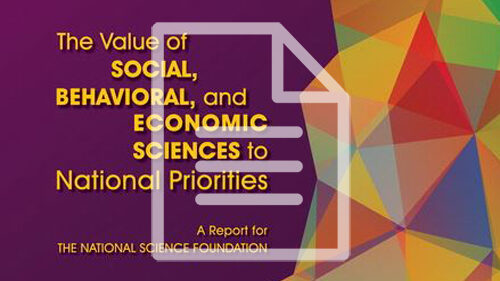
additional resources
Recommended Reading
-
Inside the Nudge Unit: How Small Changes Can Make a Big Difference
By David Halpern
-
The Last Mile
By Dilip Soman
-
Thinking, fast and slow
By Daniel Kahneman
Free Resources
-
Grit: The power of passion and perseverance
Angela Lee Duckworth
-
The puzzle of motivation
Dan Pink
-
When you’re making a deal, what’s going on in your brain?
Colin Camerer
BSP is an international peer-reviewed journal featuring short, accessible articles describing actionable policy applications of behavioral scientific research that serves the public interest. Edited by foremost disciplinary scholars for scientific rigor, and leading policy analysts for relevance and feasibility of implementation, manuscripts that pass this dual-review are professionally edited to ensure accessibility to a broad audience including policy makers, executives, behavioral scientists, and educated lay readers. BSP is an interdisciplinary joint publication of BSPA and the Brookings Institution.
Learn more about BSP and other publications
